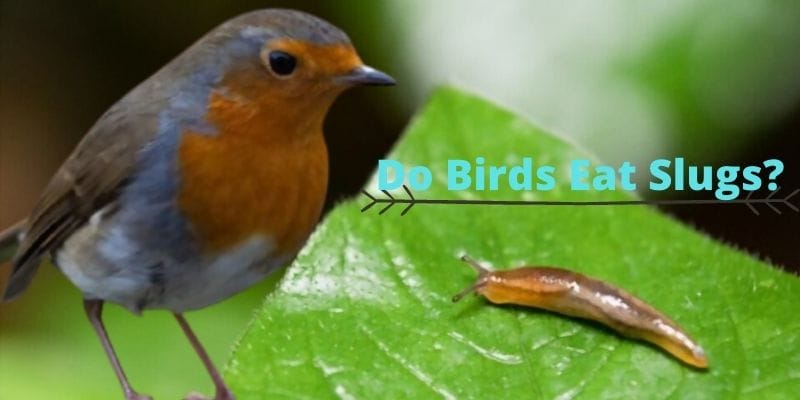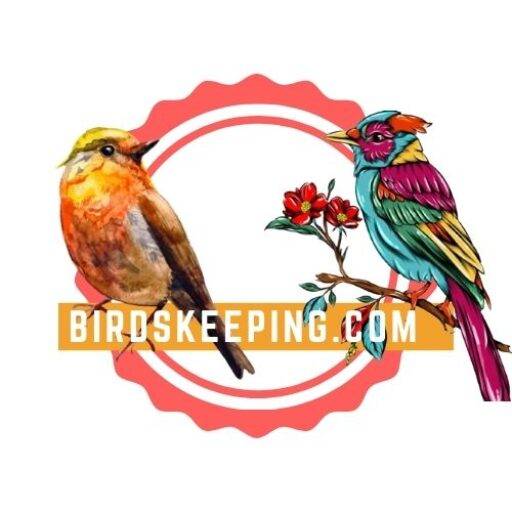We all know that birds eat fruits, vegetables, insects, and other foods. Slugs are a different thing, and many individuals do not know that do birds eat slugs?
The truth is that birds can eat slugs, and they enjoy eating slugs. Various types of nutrients are beneficial for birds present in slugs.
Table of Contents:
- Are Slugs Safe For Birds?
- Do Birds Like Eating Slugs?
- Do Wild Birds Eat Slugs?
- How To Serve Slugs To Birds?
- Do Birds Eat Slug Pellets?
- Are Slugs Poisonous To Birds?
- Summary
Are Slugs Safe For Birds?
Before the answer, are slugs safe for birds? It is important to know what a slug is. A slug is an animal similar to a snail. But the main and important difference between them is that a snail has a shell and a slug has no shell.

Slug belongs to the group of soft-bodied animals whom we call mollusks. In this soft-bodied group of animals, oysters, clams, and squid are also included.
Do Birds Eat Spiders?
Now it’s our turn to answer our main question: Are slugs safe for birds?
Many birds, including downy woodpeckers, robins, and grackles, can eat slugs. It is safe for birds to eat slugs because slugs are a natural source of food for birds.
Slugs have nutritional value, too, consisting of calories, Carbs, fats, and proteins. It is considered a good natural source of food for birds.
Do Birds Like Eating Slugs?
Slugs have nutrients like carbs, fats, and proteins that are beneficial for birds’ health. It is a natural source of food for birds, along with hedgehogs, newts, and toads. Some birds, such as song thrushes, love to eat slugs.
So, if you want to feed slugs to your bird, then you can do it. This is one of the best ways of inviting birds to your garden to find and eat slugs easily from your garden. For this, you have to make a small pool or put a pot of water to attract slugs in the garden.
They will come to drink water or take refuge in it. You can get this beneficial creature for your bird’s food quickly. Do Birds Eat Bees?
Do Wild Birds Eat Slugs?
Slugs are commonly found in the wild, and a large amount is their habitat. The birds that live in the wild are free from any restrictions and usually live their lives with complete ease and comfort. But the danger of being caught by hunters always exists.
On the other hand, birds are always free to choose food for their eating in the wild. They can eat whatever they want as there are so many foods, fruits, nuts, and slugs available in large quantities with wide varieties.
So, when we talk about slugs, wild birds like to eat slugs. In the wild, so many other things like slugs and snails produce large quantities, and birds can eat as much as they want, and it is good for their health.
How To Serve Slugs To Birds?
Slugs are less complex living animals. However, there is no specialized study about the nutrients of slugs. But they commonly have some nutrients like protein, fats, and carbs.
In the wild, birds can easily grab slugs and eat them, and they do not have to make an extra effort to catch and eat them because they are found in plenty in the wild.
But in domesticated areas or houses, birds can not find many slugs to eat. You must do something to attract this beneficial creature for your birds or resist them escaping.
Do Birds Eat Butterflies?
Slugs cannot swim, so you can place them in a dry place surrounded by water so they will not be able to escape from that place. When birds feel thirsty and come to drink water, you can place slugs in front of them and feed them easily.
Do Birds Eat Slug Pellets?
Slug pellets are small cylindrical shape bullets. These slug pellets contain substances that are poisonous to slugs and snails, and these slug pellets use to prevent snails and slugs.
When they sprinkle around growing plants, they protect plants from pest damage. There is slug poison with two types of ingredients that are used for slug pellets.
Commonly slug pellets are used for pest damage. It is considered a famous method of controlling the pest in the garden. But as it makes it attractively, along with slugs, birds and hedgehogs also attract it.
When slug pellets are attracted to birds, they attempt to eat them, and somehow they eat slug pellets. These slug pellets are not, to some extent, harmful to birds. So, it is okay if birds eat slug pellets.
Because slug pellets, or we can use the word slug killer, contains aluminum sulfate that is not enough organic.
But it is environmentally friendly because this pellet structure produces in a way that kills slugs and snails. The risk level is a minimum of being affected by other pets or wildlife.
Are Slugs Poisonous To Birds?
In the wild, slugs are common in different varieties and significant amounts, and it is a part of nature in wildlife.
So many birds, hedgehogs, and some other animals eat slugs and utilize them to satisfy their hunger. So, as everything in the world is created for specific purposes, these slugs also exist as food.
On the other hand, if slugs come into the garden of anyone, the best way to get rid of them is to offer birds to eat them.
It will be a surprise to see how the slug countdown starts. All the birds will eat slugs one by one, and you will find your garden free from slugs because of the birds that eat them.
Many birds eat slugs, but you will find robins and crows more active on lawns pulling up slugs and worms under the soil. So, birds can easily eat them, and you will make your garden slug-free, so your plants remain secure.
They will not be harmful to birds. But if we talk about some giant slugs, then they can be poisonous to birds.
Birds can face difficulty while eating giant slugs, or it is possible if the bird does not try to eat a giant slug, maybe he can’t do it as it is poisonous and harmful to them.
Summary
Slugs are members of family mollusks. They are considered an animal, and they look like a snail without a shell. Birds like to eat slugs whenever they spot slugs. But they usually do not prefer to eat giant slugs that are difficult for them to consume.
Follow me on
Birdskeeping is supported by its readers. When you purchase through links on our site, we may earn an affiliate commission. Also, as an Amazon affiliate, we earn from qualifying purchases without costing you extra.

